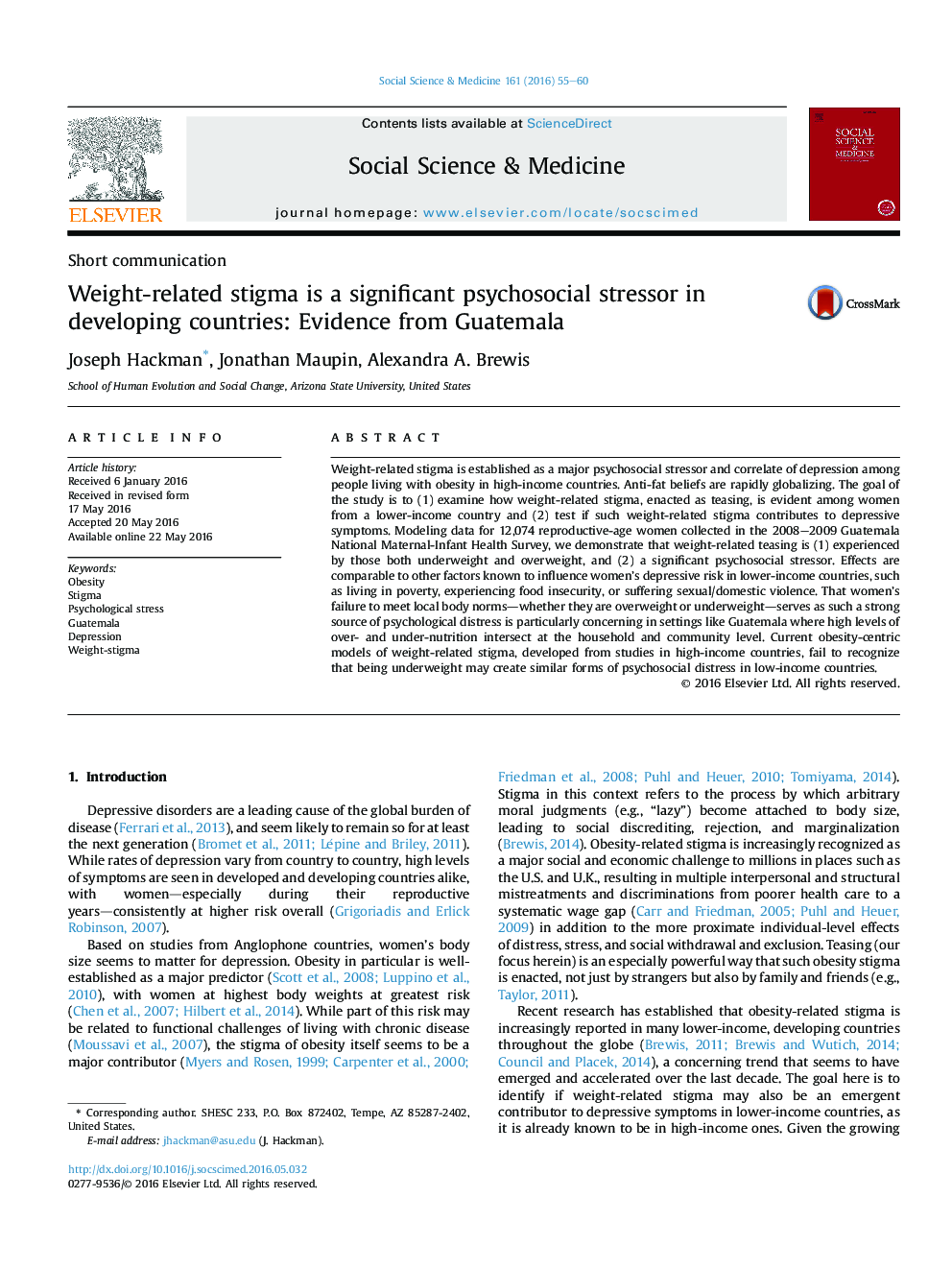| Article ID | Journal | Published Year | Pages | File Type |
|---|---|---|---|---|
| 7329888 | Social Science & Medicine | 2016 | 6 Pages |
Abstract
Weight-related stigma is established as a major psychosocial stressor and correlate of depression among people living with obesity in high-income countries. Anti-fat beliefs are rapidly globalizing. The goal of the study is to (1) examine how weight-related stigma, enacted as teasing, is evident among women from a lower-income country and (2) test if such weight-related stigma contributes to depressive symptoms. Modeling data for 12,074 reproductive-age women collected in the 2008-2009 Guatemala National Maternal-Infant Health Survey, we demonstrate that weight-related teasing is (1) experienced by those both underweight and overweight, and (2) a significant psychosocial stressor. Effects are comparable to other factors known to influence women's depressive risk in lower-income countries, such as living in poverty, experiencing food insecurity, or suffering sexual/domestic violence. That women's failure to meet local body norms-whether they are overweight or underweight-serves as such a strong source of psychological distress is particularly concerning in settings like Guatemala where high levels of over- and under-nutrition intersect at the household and community level. Current obesity-centric models of weight-related stigma, developed from studies in high-income countries, fail to recognize that being underweight may create similar forms of psychosocial distress in low-income countries.
Related Topics
Health Sciences
Medicine and Dentistry
Public Health and Health Policy
Authors
Joseph Hackman, Jonathan Maupin, Alexandra A. Brewis,
